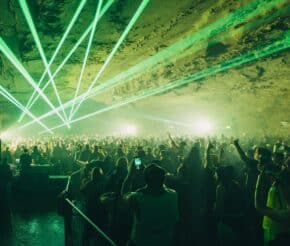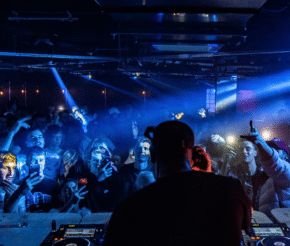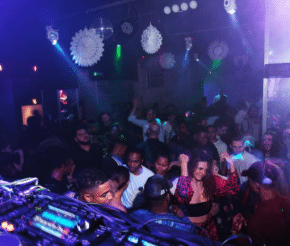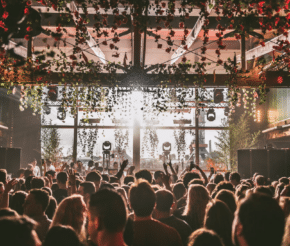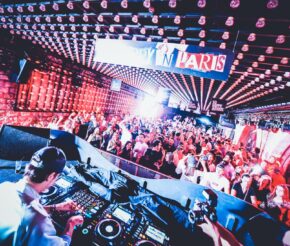- Advertise
-
Subscribe
All About Stereo Montreal
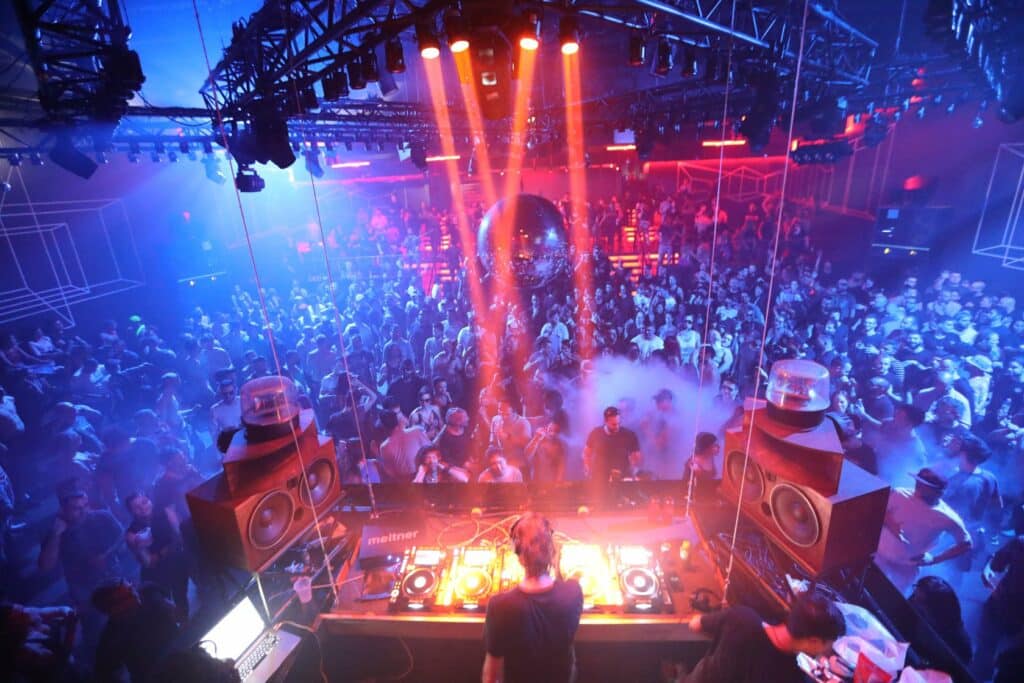
Montreal, Canada
Club / Indoor only / S – 500-2k
City
Electronic
$$
Underground, Alternative
VIP
There’s no better place to experience Montreal clubbing than Stereo.
Stereo breathed life into a former theater in the vibrant and colorful center of Montreal’s renowned Gay Village. Known for its diversity, this electrifying area has long been home to a bustling LGBT+ community, as well as an exciting nightlife scene.
Stereo boasts a formidable industrial exterior with two levels of non-stop partying and is renowned for being one of the top nightlife spots in town.
The music hub is the undisputed leader in Montreal nightlife, with its signature sound of exceptional electronic beats. Stereo always delivers memorable setlists, hosting world-renowned DJs and local up-and-coming artists alike.
From locals to non-locals, everyone flocks to Stereo for its booming music and underground vibe.
Whether dressed down or up, people are sure to have a night they won’t forget when they come set foot inside Montreal’s electronic mecca.
Featuring an exemplary audio system and amazing laser light projections, Stereo is a must-see for anyone looking to experience Montreal’s underground scene.
Here’s everything you need to know about Stereo Montreal.
Stereo is more than a mere nightclub – it’s part of the city’s cultural fabric
Born as a place for music lovers, Montreal’s Stereo nightclub first opened its doors in 1998. Inspired by the now-shuttered New York club Paradise Garage, founder Angel Moraes wanted to bring his club to life.
Moraes modelled Stereo after Paradise Garage because he used to stand behind the club’s audio decks. The iconic NYC discotheque is commonly known as “Gay-rage”, as it was a symbol in electronic music’s development, as well as LGBT+ after-hour clubbing culture.
Currently owned by Tommy Piscardelli, Stereo Montreal was completely destroyed by a huge fire in 2008. The much-needed extensive repairs forced the nightlife hub to close its doors for a year, but it came back roaring.
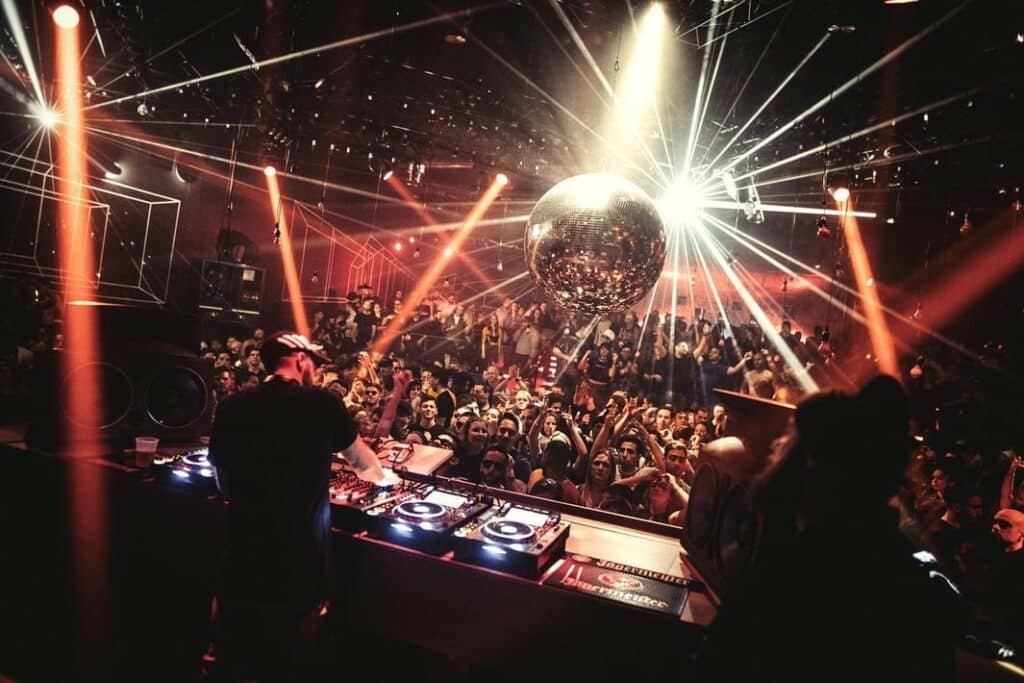
Despite its cultural status on Montreal’s clubbing map, Stereo is no stranger to hardship and bottomless pits. Since its grand debut, the electronic club has endured two fires.
But just like a Phoenix, it triumphantly rose from its ashes every time. Despite the misfortunate events, Stereo returned better than ever, receiving moral support from loyal party-goers.
The club was closed for most of the COVID-19 pandemic but reopened in late 2021 to commemorate its 22nd birthday with artists like Black Coffee, Berlin-based techno duo Pan-Pot, and techno powerhouse Ame.
This electronic hub thrives in Montreal’s Gay Village
Stereo found shelter Montreal’s Gay Village, a central area renowned for its upbeat vibe and lively club scene. It is the largest gay village in North America in terms of geographical area.
As the go-to meeting point for the city’s LGBT+ community, the rainbow-striped Gay Village is home to a myriad of queer bars, clubs, unique boutiques, and nightlife temples. But back in the day, the Gay Village’s clubbing scene mainly translated into the closure of gay-owned businesses.
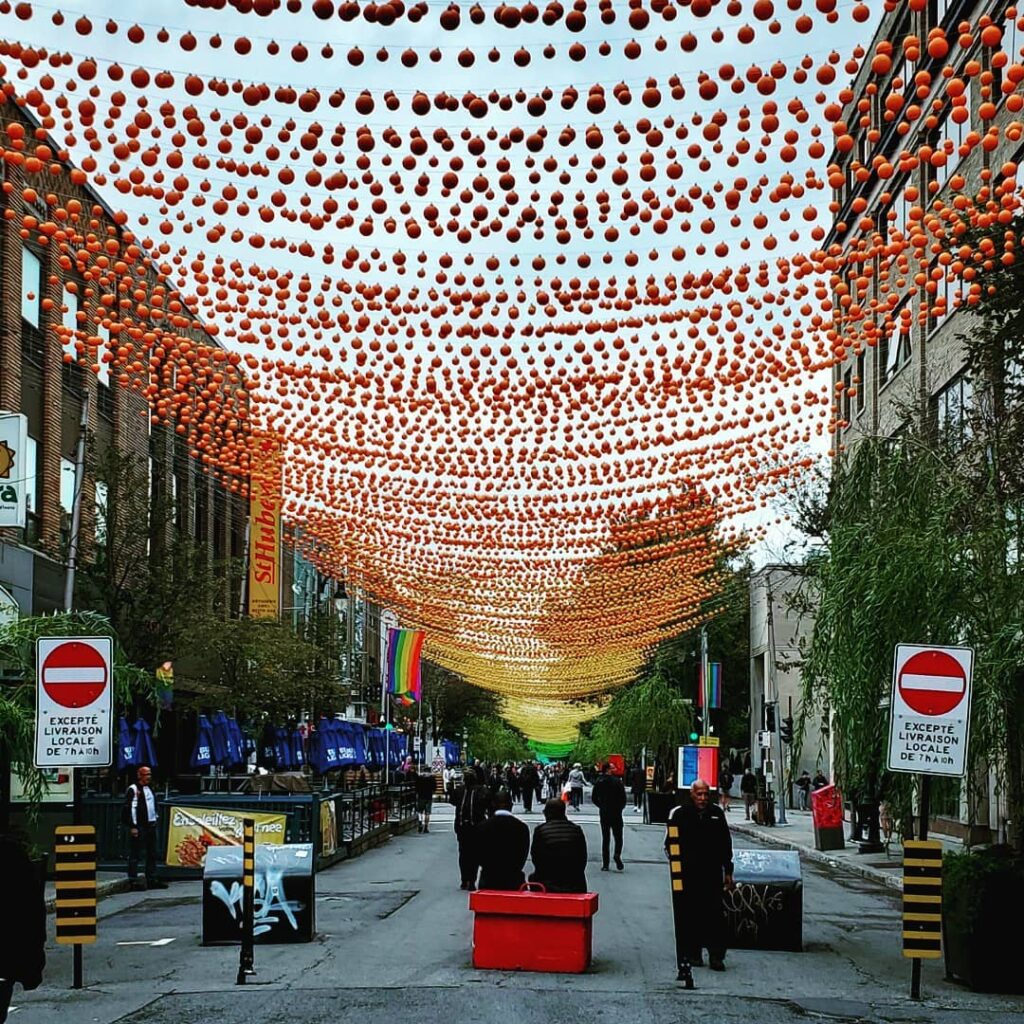
Shady allegations that resulted in the arrest of several owners and customers brought prejudice on the table.
In the past, LGBT+ hubs were raided, and several owners were forced to close down.
Fast forward to today, stepping on its vibrant streets will make you feel like entering an LGBT+ world. It might be because of the rainbow balls strung above your head, street performances and uber-diverse vibe.
In the summer, bars and restaurants overflow onto the terraces along Sainte-Catherine Street, a pink-tinged pedestrian-only zone.
Just like its name, Stereo has a state-of-the-art sound system
Revelers know all too well what makes a venue great – the sound. Staying true to its name, Stereo has a clear and crisp sound system that is one of city’s best.
Craig Bernabeu, the owner of high-end sound system company SBS Slammer, had the cutting-edge, fully analog sound system custom-built for Stereo. Bernabeu – who also goes by Shorty – began working on revamping the club’s original audio system in 2003. In an interview, he said that a good sound “is what the people coming through the doors at Stereo deserve.”
When the sun rises, the last beat drops, and the club’s lights get turned on, Stereo doesn’t disappoint either. Judging from the outside, you wouldn’t ever guess that the black metal entrance shelters a two-story music temple.
Originally a charming 591-seat cinema theater called Theatre Universite, the venue was transformed into an underground club in 1998. With a solid capacity of 700 revelers, Stereo oozes a spacious vibe.
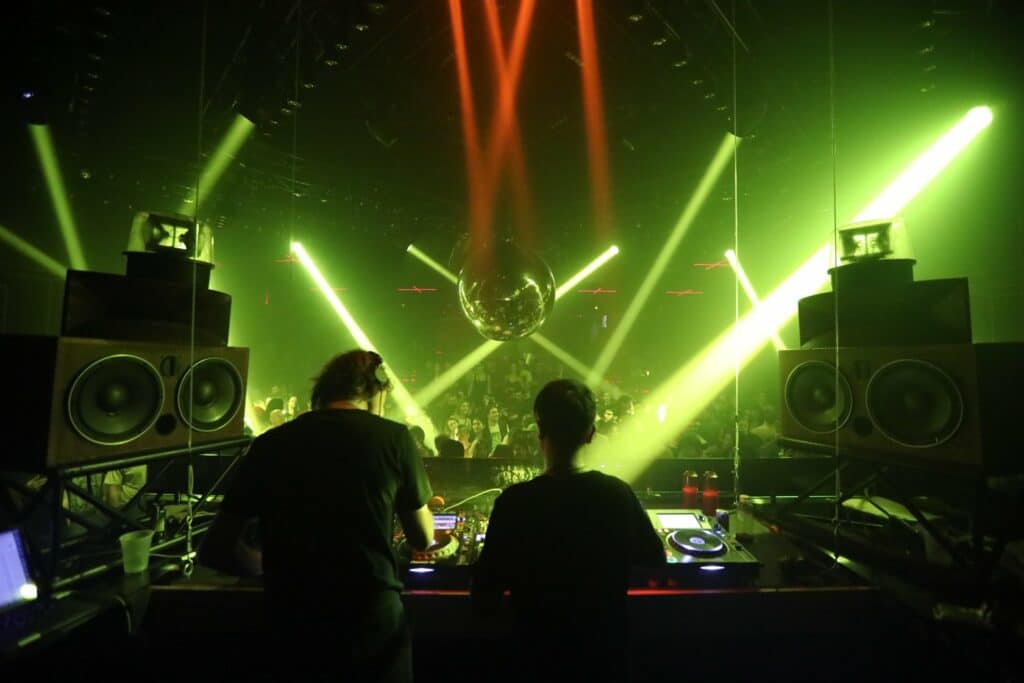
The nightclub is divided into two floors, with the after-hours area on the upper floor and an intimate lounge called StereoBar on the lower floor, selling alcohol during Quebec’s regular bar hours.
Resident DJ Alex Pycke said another room encases Stereo’s main dance floor, acting like a soundproof armor.
With the noise-canceling structure, pedestrians and residents are shielded from the raging bangers.
The hardwood dance floor features embedded springs and is raised five feet above the bottom of the building, which makes it highly comfortable and easy for clubbers to bounce around.
Stereo’s interior design is all-black and minimal with an underground aura, featuring steel staircases and balconies. Accompanying the sound system is a jaw-dropping lighting system that regularly sweeps clubbers off their feet.
Stereo is a Montreal techno devotee
Stereo is a vibrant hub in Montreal, as the hideout’s music repertoire has a soft spot for bullet-hard and dirty techno beats.
Primarily known for being an ambassador for the city’s leading sound – which translates into pounding and mechanical beats – Stereo gets the masses flooding in with its chaotically bumpy soundtrack.
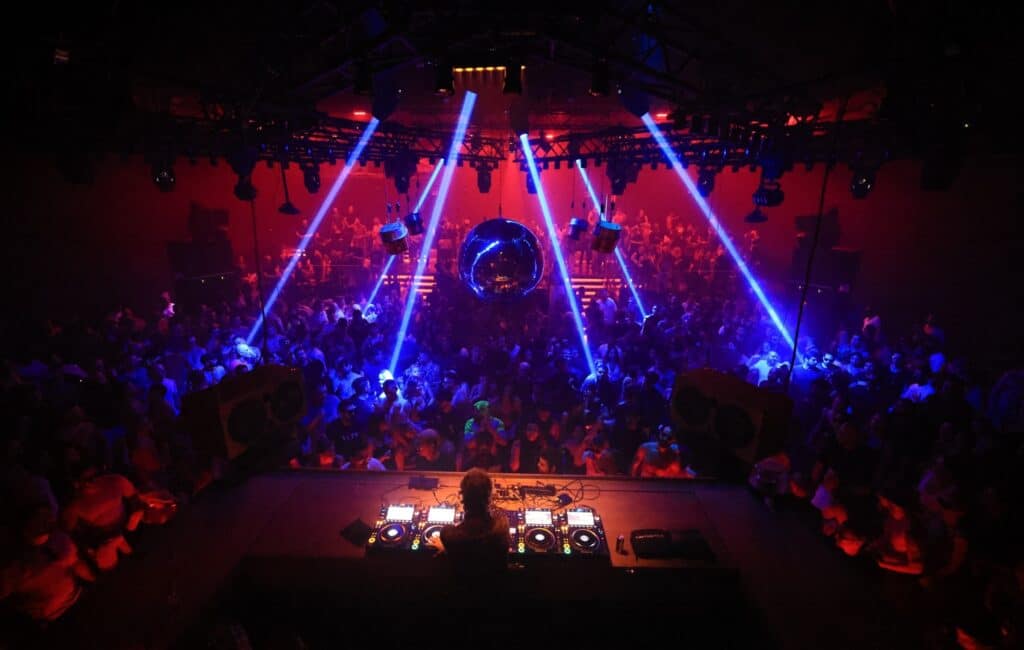
Since the main floor’s speakers predominantly blast dark techno and tech-house, the music mecca shelters everything that is electronic-related.
International names from the electronic realm regularly take over the decks, such as American DJ Danny Tenaglia, techno legend Soul Button, electronic powerhouse Hernan Cattaneo, and Budapest-born DJ Jay Lumen.
Not solely focused on international talent, Stereo also showcases local DJs like Atroxx, Jesse Zotti, and Tone Depth.
With international and homegrown talent, Stereo solidified Montreal’s status as North America’s electronic capital through its relentless music commitment.
Get tickets ahead of time
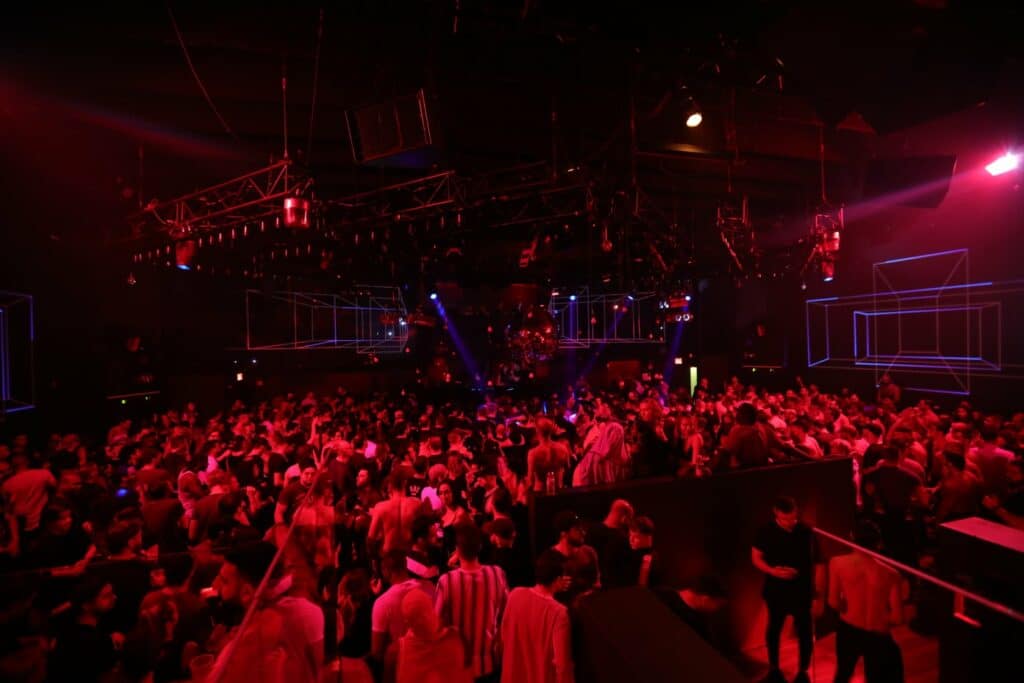
A victim of its own reputation, Montreal’s Stereo is usually a full house, as locals and tourists queue for hours to get the affirmative nod from the bouncer. Tickets range from $25 to $35, but Stereo usually charges more for bigger-name DJs.
Pre-sale tickets are available on Stereo’s website, so be sure to snatch some ahead of time.
Stereo Montreal shows us that a real party doesn’t need alcohol
The ban on booze and photography keeps the music front and center.
Although Stereo is an alcohol-free club, you can guzzle your fill downstairs at StereoBar before heading to the dance floor. One of the main advantages of the no-booze approach is the club’s ability to operate for longer, freeing Stereo from the restrictive hours imposed by liquor licensing.
Montreal nightclubs can stay open until 4 AM, with the last call around or before 3 AM. To put this into context, parties at Stereo don’t get going until 3 AM, hence why it’s a buzzing afterparty when all other places have closed.
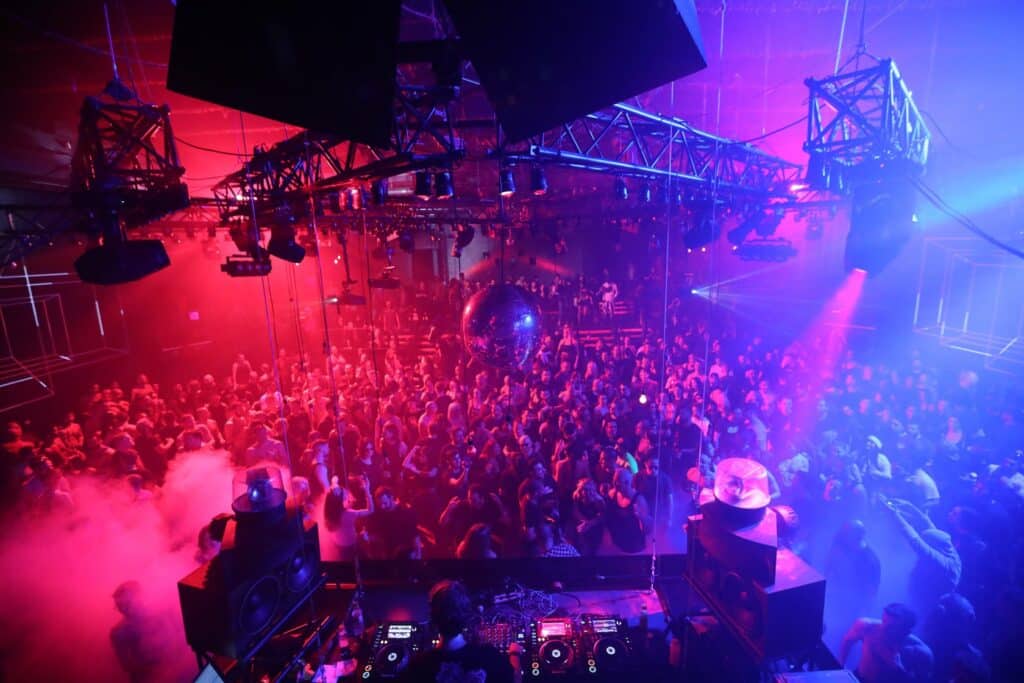
While the pandemic arguably hit nightlife the hardest, owner Piscardelli wasn’t afraid to let the Quebec government know how he felt about their dancing ban.
While bars and restaurants could operate at full capacity in October 2021, dancing and karaoke were still banned under the new “relaxed” regulations.
Piscardelli felt disappointed, especially since thousands of fans danced without masks at a Ricky Martin and Enrique Iglesias concert inside the Bell Centre.
This made Piscardelli and other nightclub owners hold a large demonstration. As a result of this successful protest, the Quebec government decided to allow the reopening of dance floors and lift the karaoke ban.
You say average underground club, Stereo says 24-hour DJ marathon set
Yeah, Stereo Montreal is cool when it takes the clubbing concept to the next level with its 24-hour raving sessions.
It didn’t always start this way – the B2B sets kicked off with a 10-hour session in 2015. Following the immense success, Stereo’s DJ marathon lengthened to 15 hours the following year and 20 hours in 2017.
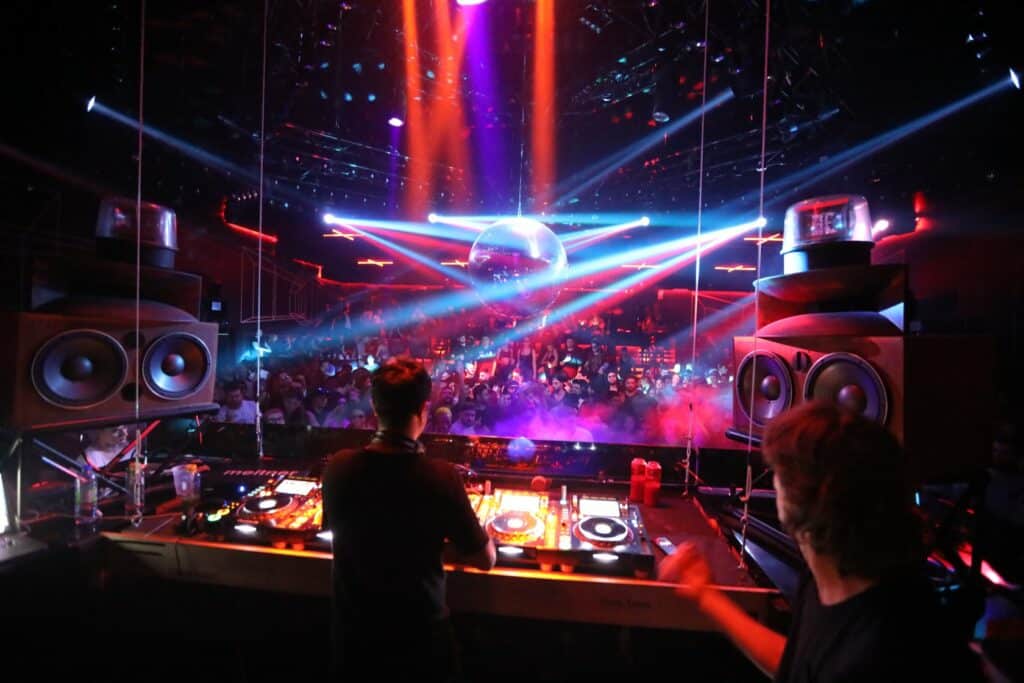
The electronic destination hosts a December annual B2B DJ marathon by Guy J and Hernan Cattaneo, which makes it the go-to hub for the dedicated clubber who eats unhinged parties for breakfast.
In 2018, the DJ pair reached yet another record for spinning the audio decks for 21 hours – but the duo broke the ceiling and eclipsed their previous set 24-hour marathon in the 2019 edition.
